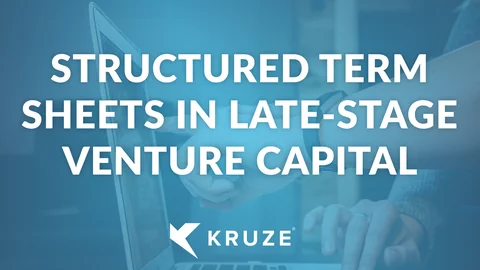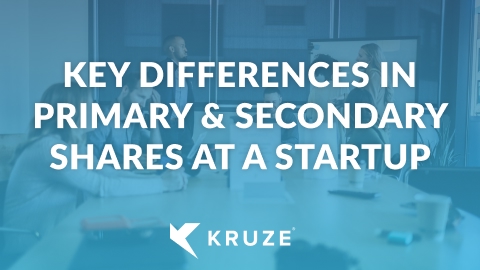
Structured term sheets in late stage venture capital - they’re back!
Highly structured term sheets - this is a type of venture investing that went away during the boom times, but now that the funding marketing is cooling, it’s back.
What are structured VC term sheets?
Highly structured venture investments are almost debt that sits on top of the existing equity capitalization structure. It is still on the cap table, but has senior preferences. This means that these investors get paid back before the other venture investors (and before the equity investors). These investments are often used to prop up high private company valuations for startups that are having problems raising fresh rounds of capital.
There are some funds that are just dedicated to doing these types of rounds, or hedge funds that smell an opportunity.
Overly High Valuations Drive Structured Term Sheets
In the middle of 2022, there are a lot of companies sitting around with valuations that are just too high relative to where the market is now. But these companies still need to raise capital to support their operations (and hopefully support their growth). but those companies might still need money. And so the hedge funds, or structured players, see an opportunity to come in, give the company money, and get a senior equity security. And these investors require a very heavy dividend (paid in kind) or cash pay component. So they’re getting a synthetic interest, or a real cash interest, out of the company to compensate them for investing in the company and propping up the valuation.
Definition: Paid in Kind - PIK
Many of these structured investments have PIKs – “paid in kind.” This means that the structured equity has a dividend that has an interest rate that is paid in equity. So the equity position actually continues to increase. So instead of maybe all cash dividends it could be half cash dividends and half paid in kind dividends in the form of extra senior preferred equity.
PIK positions mean that the investor is increasing their ownership position over time. And, since the payment is in the form of the structured equity, the basis for the dividend percent increases as well – it’s compounding. So the investor gets more ownership in the company and gets a compounding dividend paying stock.
Why startups accept structured equity
As we’ve already discussed, the major reason startups accept highly structured investments is because it preserves the company’s (high) valuation. These investments are often done at the existing valuation. It’s just a different security. Founders like this for several reasons, the first being ego. Being able to say you’re a unicorn is a big deal, and it would be very humbling to have to do a recap and bring that valuation down.
A declining private company valuation may also impact the company in other ways. It is possible (and likely) that your existing preferred shares have a “pay to play” provision. This provision essentially forces the existing VCs to invest to protect their existing ownership. If funds have limited reserves available, and if the startup in question has been around for many years, the funds may not have the capital available to participate in the pay to play. So the existing investors are also incented to keep the valuation high so that they don’t have to step up with a big check. They also want to take the highly structured term sheet.
The later-stage funds are fresher funds, they’re usually only a couple years old, and they could protect their own ownership position. They could write another check usually pretty easily, but they also don’t love down rounds, mainly because this indicates that they recently invested at too high a valuation. So a lot of VCs do not want to do this.
Sometimes there’ll even be arguments between the VC syndicates inside of a company on the cap table or between the VCs and the founder, because it makes it really hard to raise another round after a highly structured term sheet. So, if a company does succeed in raising a highly structured round, the founders often have to be very careful how they burn cash, so that they company can reach an exit prior to running out of cash (or become cash flow positive).
If you have other questions about VC financing for startups, you can find information on our YouTube channel under Financing a Startup, or contact us.















